Are you feeling uncertain about the terms of your current contract? Whether it's due to changing circumstances or new insights, reevaluating a contract can be crucial for ensuring that your needs are met. Many people overlook the importance of a thorough review, but taking the time to assess and adjust the agreement can lead to a more beneficial arrangement for all parties involved. If you're interested in learning how to effectively request a contract re-evaluation, keep reading for a detailed template and tips!

Clear Subject Line
Subject: Request for Contract Re-evaluation This request pertains to the current contractual agreement dated [Insert Date], involving [Insert Parties' Names or Organizations]. The scope of the agreement includes [briefly describe the main terms or deliverables]. Recent developments, such as [mention specific changes in conditions, market trends, or organizational needs], have necessitated a reassessment of the terms outlined. Key areas of focus include [list specific terms or conditions to be reevaluated, such as pricing, deliverables, timelines]. A detailed analysis indicates that adjustments could enhance mutual benefit and ensure alignment with current objectives. Thank you for considering this request, and I look forward to discussing the potential for a revised agreement.
Specific Contract Details
A contract re-evaluation request can be essential for ensuring that both parties are benefiting from the agreement. Specific details include the contract number, start date, and key stakeholders involved, such as the primary contact from each party. Changes in market conditions or project scope (e.g., timelines, deliverables) may prompt a need for re-negotiation. Additionally, performance metrics outlined in the original contract, like delivery timelines or quality standards, could indicate the effectiveness of the existing terms. Such re-evaluations serve to adapt agreements, ensuring relevance and mutual benefit.
Reason for Re-evaluation
A contract re-evaluation request is essential when circumstances surrounding the initial agreement have changed significantly. Such situations may include, but are not limited to, economic fluctuations, unforeseen market conditions, or the emergence of new legal regulations. For example, a sudden increase in raw material prices by up to 20% can create a substantial impact on production costs outlined in the original contract. A reevaluation is necessary to assess the financial implications of these changes, ensuring that both parties maintain a fair and equitable agreement. Furthermore, industry standards may have evolved since the contract's inception, necessitating an alignment of terms and conditions with the current operational landscape to avoid potential disputes and ensure continued collaboration.
Supporting Evidence or Data
In the process of contract re-evaluation, it is crucial to present supporting evidence that substantiates your request. This evidence may include performance metrics which reflect contract compliance over the last twelve months, highlighting any discrepancies in service delivery against established benchmarks. Documentation from independent audits, such as a financial assessment conducted by a certified firm, can provide insight into cost management and potential savings. User feedback collected through surveys illustrating satisfaction levels or concerns about service quality serves as qualitative data that underscores the need for reassessment. Additionally, market analysis reports reflecting changes in industry standards or competitor performance can contextualize your request within broader trends. All these elements combine to create a robust foundation for your re-evaluation appeal, emphasizing the necessity for contract adjustments to align with current operational realities and objectives.
Requested Changes and Deadline
In the realm of contract management, the necessity for re-evaluation can arise due to various factors such as changes in project scope or financial constraints. Stakeholders should provide a detailed list of requested changes, specifying alterations to terms, conditions, or deliverables. A clear deadline, typically 14 to 30 days from the initial request, ensures timely review and prevents project delays. The contract in question, located in a corporate database or shared drive, must be referenced specifically by its title or identification number for clarity. In addition, all stakeholders involved in the contractual agreement, including legal teams or project managers, should be informed to facilitate a smooth amendment process.
Letter Template For Contract Re-Evaluation Request Samples
Letter template of contract re-evaluation request for service agreement renewal
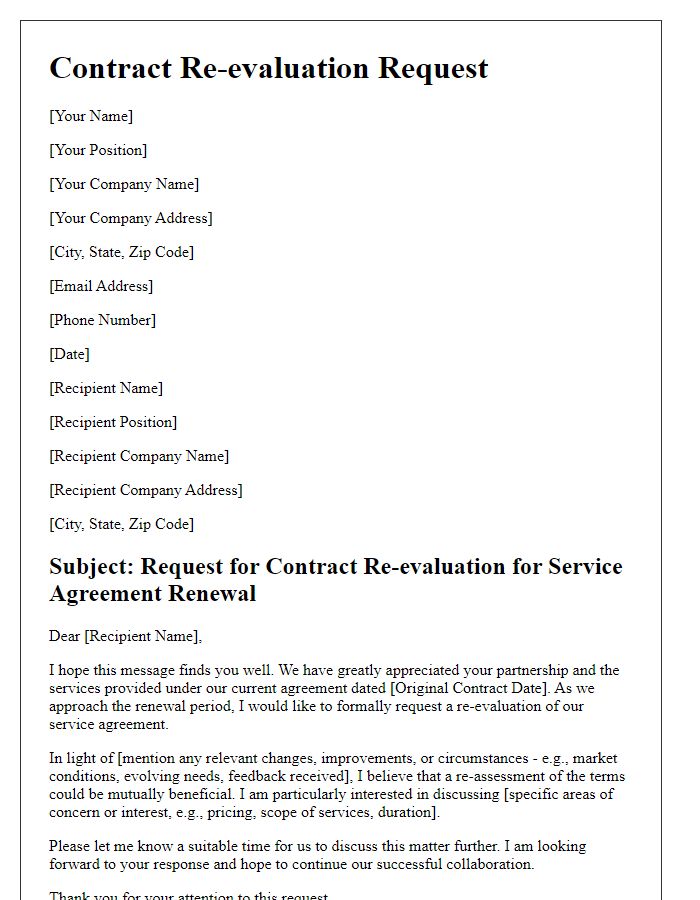
Letter template of contract re-evaluation request for performance assessment
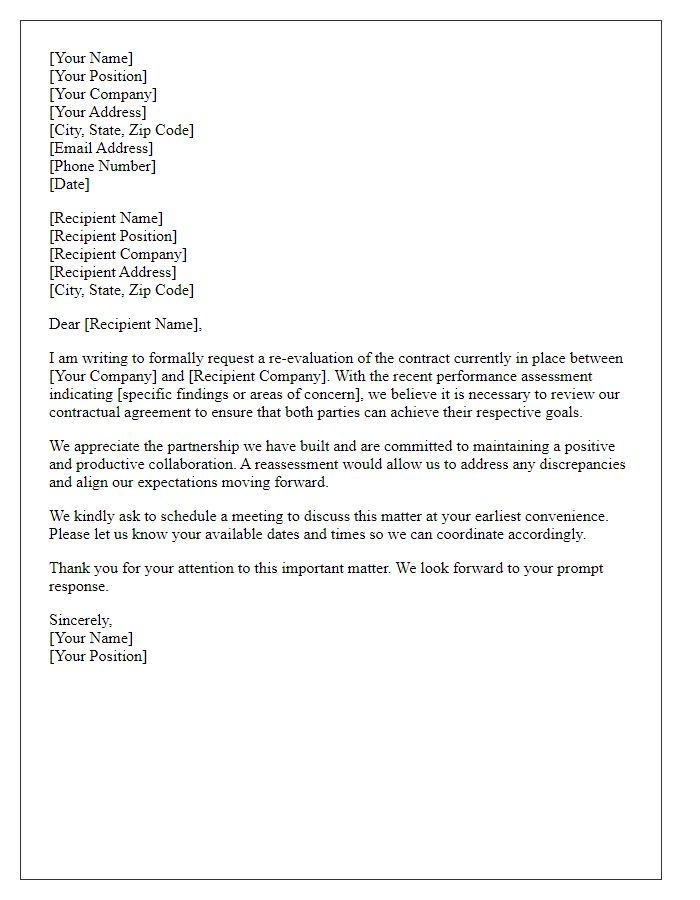
Letter template of contract re-evaluation request for scope modification
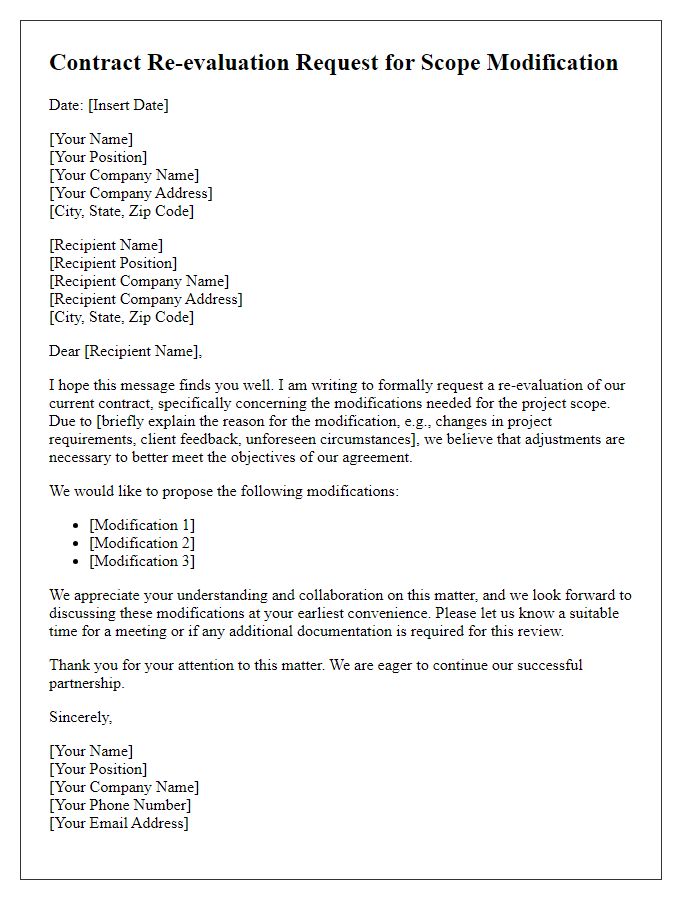
Letter template of contract re-evaluation request for stakeholder feedback
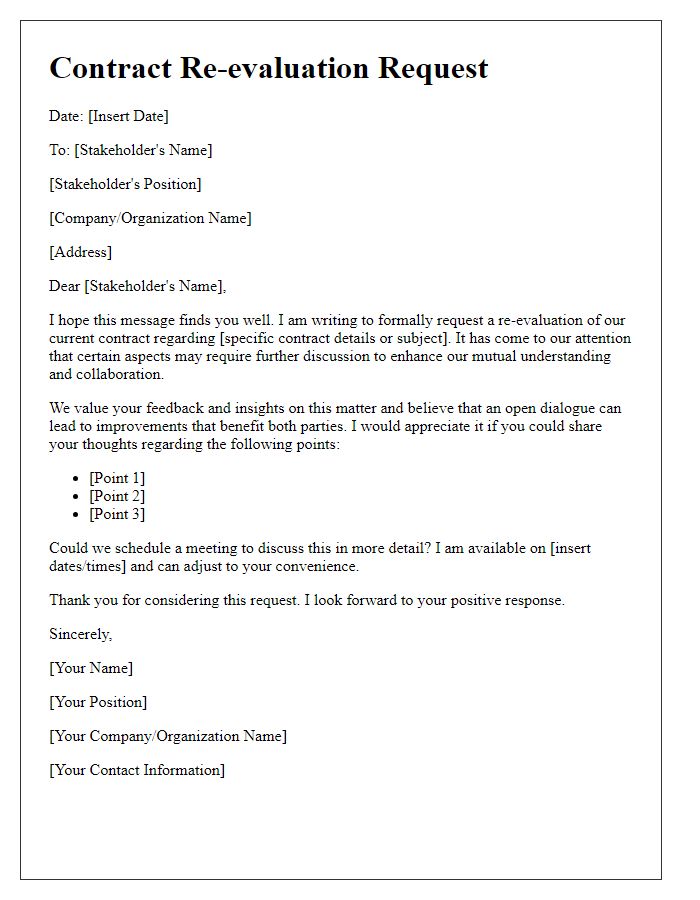
Letter template of contract re-evaluation request for risk management update
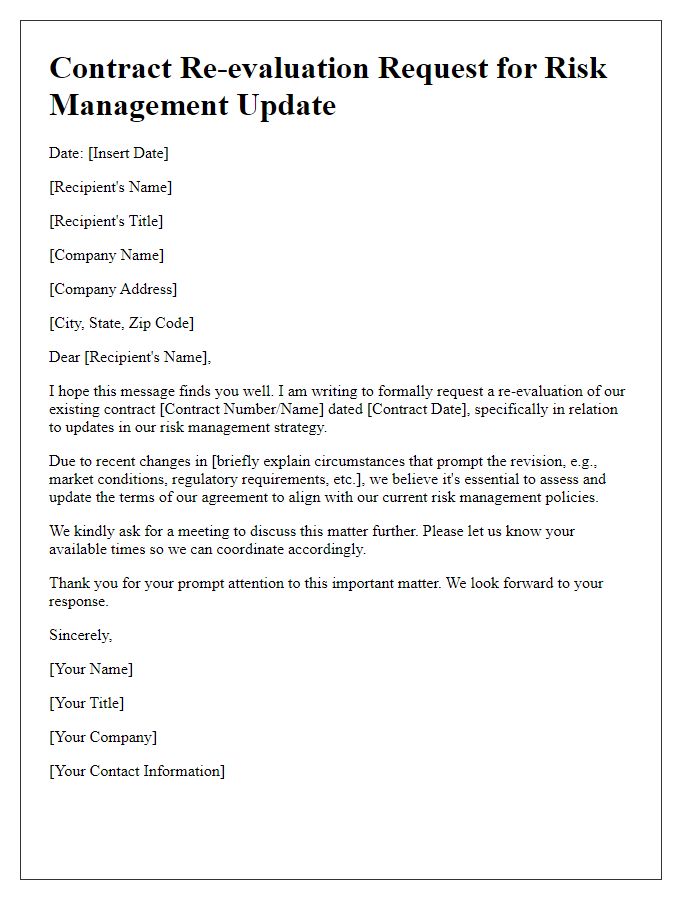

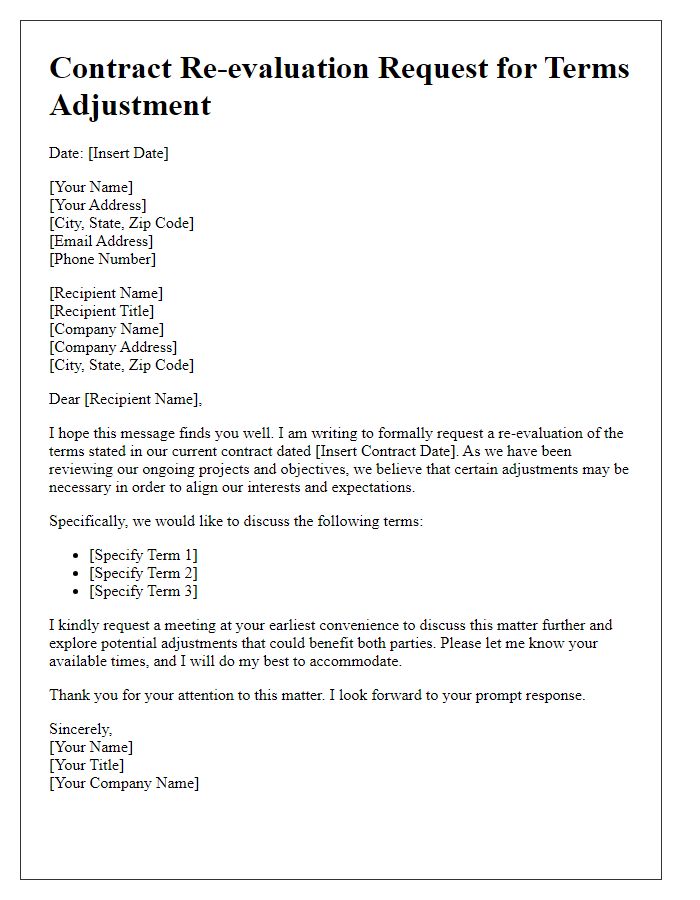
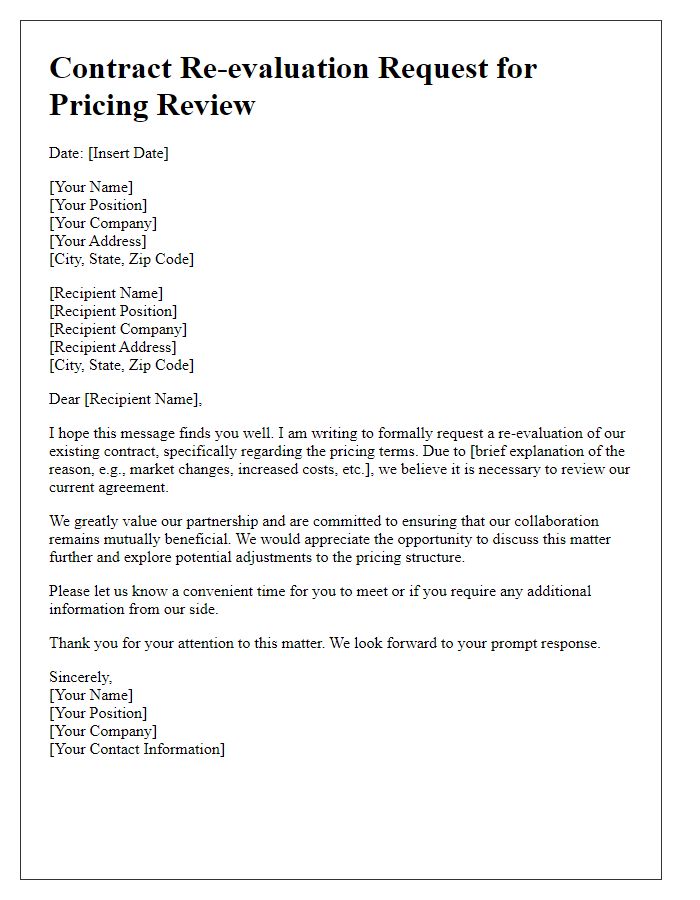
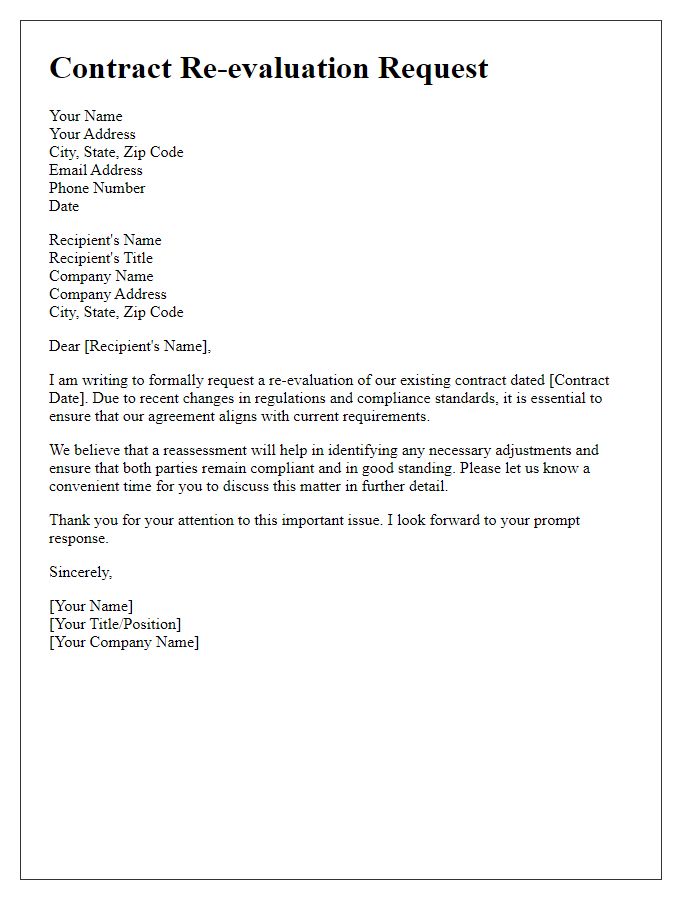
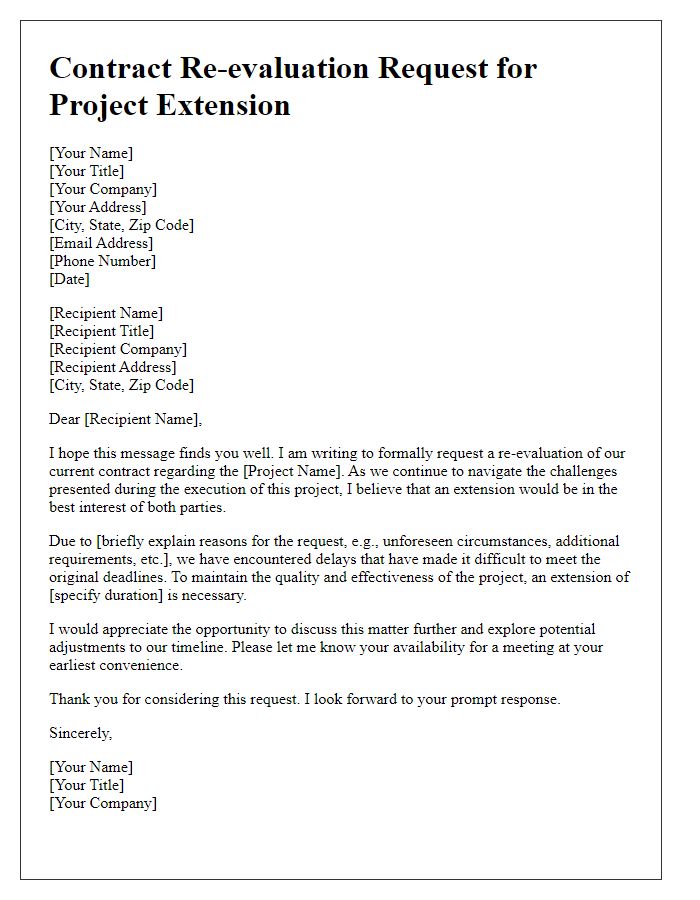
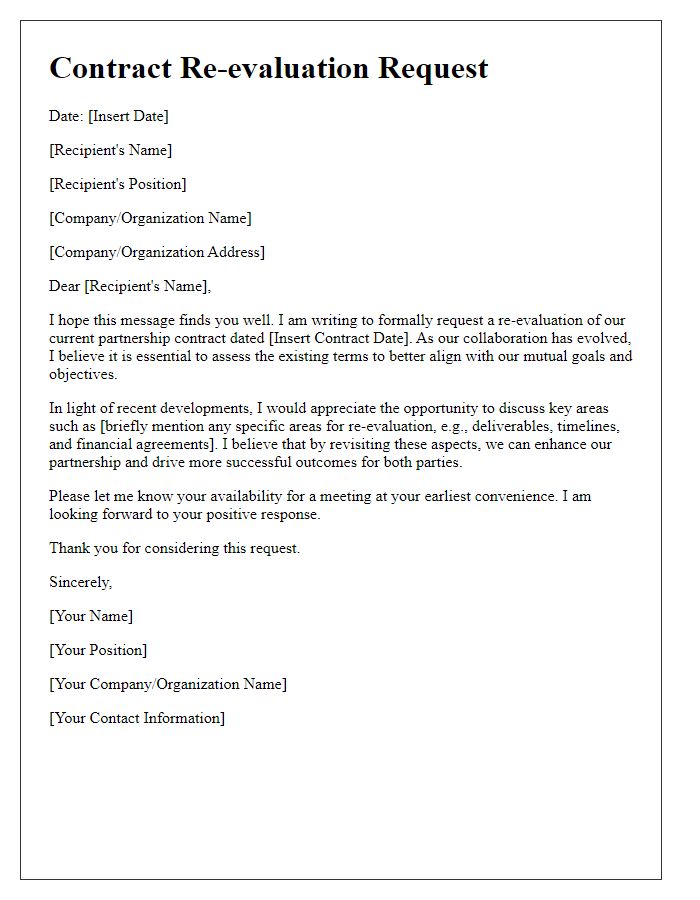


Comments